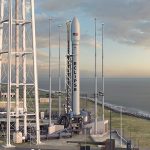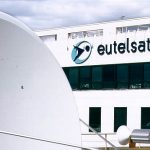Selected missions will lift off aboard a medium-class rocket to LEO, where Impulses high-energy Helios kick stage will then carry each SES satellite to higher orbits within hours.

Impulse Space, a leader in in-space mobility, has signed a multi-launch agreement with satellite operator SES to utilise its Helios kick stage system to reduce the time required for SES satellites to reach their final orbital destinations. The partnership will enable SES to move its payloads directly from Low Earth Orbit (LEO) to high-energy orbits, such as Geostationary Orbit (GEO) or Medium Earth Orbit (MEO), within hours rather than months.
The first mission under this agreement is slated for 2027 and will see a 4-ton-class SES satellite launched via a medium-lift rocket into LEO before being swiftly transferred by Helios to GEO in under eight hours. This mission will mark the first commercial deployment dedicated solely to Helios, showcasing its full performance capabilities. The deal also leaves room for additional missions, allowing SES greater flexibility and speed in deploying satellites on demand.
Traditionally, satellite operators targeting MEO or GEO have been limited to either costly and scarce heavy-lift rockets or extended, slow transfers using electric propulsion systems. Helios presents a new optionusing chemical propulsion to transport satellites directly and rapidly to their target orbits, transforming the traditional satellite deployment model.
Commenting on the launch agreement, Adel Al-Saleh, CEO of SES, said: “At SES, we are firm believers that co-development and collaboration with our partners will help the space industry to evolve and quicken the pace of innovation. Today, were not only partnering with Impulse to bring our satellites faster to orbit, but this will also allow us to extend their lifetime and accelerate service delivery to our customers. Were proud to become Helios first dedicated commercial mission.”
Helios responsive capabilities and powerful engine enable mission operators to designand pricesatellites based on their specific operational orbit. This paradigm shift can simplify mission planning and decrease satellite mass, resulting in lower overall mission costs, while improving operational timelines.
Tom Mueller, founder and CEO of Impulse Space, added: “We believe MEO and GEO play a critical role in the space economy, but operators today face the challenges of slow, expensive, and inflexible access to these essential orbits. Helios changes thatits built to move large payloads to high-energy orbits quickly and reliably. SES has a long history of embracing innovation and pushing our industry forward, and were proud theyve chosen Helios to support the next phase of their deployment strategy.”
This marks the first commercial contract for a dedicated Helios missionwhere a single, 4-ton-class payload will fully leverage the vehicles performance capabilities for direct transport to GEO.















































































